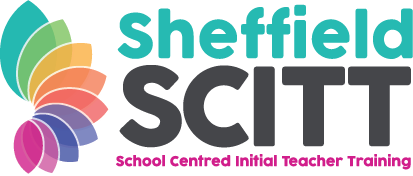We talk finance!
We talk to our 'Finance Guru' Keith Barna from The Sheffield SCITT, about bursaries and student loans.
Keith Barna. Commercial Manager
What is a bursary?
A tax free government incentive to attract people to train for Qualified Teacher Status (QTS) in subjects where there is a shortage of teachers. The different levels of bursary on offer reflects the level of shortage in that subject.
While bursary payments are not taxable. As with student maintenance loans they may be treated as capital income for assessing income for trainees in receipt of state benefits. If you are in receipt of state benefits you should check with your local benefits office whether receiving the bursary will affect your eligibility for state benefits.
Who is eligible for a bursary?
Trainees in the subjects which attract a bursary will be offered one if:
they meet the conditions attached to the bursary and
accept the terms and conditions associated with the bursary.
The main conditions are that a trainee will need to be
Training to teach in a subject which attracts a bursary and
Meets the GCSE requirements for ITT training
Primary with Maths trainees also need a B at A Level or above, or have alternative qualifications which we will assess to determine whether the content of those meets the standard required.
Have a degree which is a 2:2 or above. If your degree class is lower than a 2:2 a trainee would be eligible if the hold a higher level degree such as a Masters degree.
Trainees with “Ordinary” degrees are not eligible for bursaries unless they hold a higher level degree such as a Masters degree.
Note that your degree subject does not have to match the subject you want to train in. However, if your degree is different you will need to display sufficient subject knowledge at interview to get a place on the course.
The main terms in the “terms and conditions” attached to the bursary are that
A trainee must actively seek a teaching post in England.
A trainee cannot carry out paid work as a teacher whilst receiving the bursary.
If you want to check whether you are eligible take a look at your previous exam results and your certificates. By this I don’t mean any paperwork which you received in lieu of your certificates with predicted grades or breakdowns of the grade you got by components of a qualification. I mean the actual GCSE and degree certificates. This is not just the paperwork we will need to see to determine eligibility for receiving a bursary. It is also the paperwork that we will use to verify the information you entered on your UCAS application. If your paperwork doesn’t match this then there is a possibility you will not meet the eligibility requirements for taking an ITT course.
Where does the money come from and who pays me?
The money comes from the Government via the Department for Education.
The money is paid to the lead school in The Sheffield SCITT. This is Notre Dame High School. This includes the bursaries for any trainees who are with our School Direct partners.
The bursaries will be paid by bank transfer from Notre Dame High School.
How are bursaries paid? (Monthly/start of each term/lump sum)
Bursaries are paid in 10 equal month instalments from mid October to mid July.
If I do not complete or pass the training, would I be expected to repay the bursary?
You will only be eligible to receive the bursary while you are actively engaged with the course. Once you cease to be actively engaged then you will stop receiving the bursary.
If you do not pass but remain actively engaged you will receive the full bursary.
In both cases you will not be expected to repay the bursary you have received.
What happens if I’m not eligible for a bursary? What other funding options are there?
If you are not eligible for a bursary the alternatives are:
Your own personal capital
Student Loans
The bank of friends and relatives
What’s the difference between a bursary and a student loan?
Bursaries are not means tested but are only available to trainees in certain subjects.
There are two types of student loans
Tuition Fee Loans – non means tested
Maintenance Loans – means tested – the value of this to you will be determined on application.
Available to all students who meet the residency requirements of the system.
Trainees with a UK residency permit which says “No Public Funds” are unlikely to receive student loans.
Are there any hardship funds I can access?
We do not have a hardship fund and are unable to offer any financial assistance to trainees on our course.
Any other important information that would be useful to a trainee?
Do the sums.
Everyone’s personal circumstances are different but I think it is a must for trainees to do the sums before they apply, get accepted and pack in any source of income they might currently have.
Think about what you need to live on during the course. Most people who do this would factor in rent, gas electricity, food, entertainment, internet access etc.
However, as we cannot guarantee a placement within walking distance of where you live then do not forget to allow for some transport costs.
If your wardrobe consists of jeans and t-shirts then remember there will be a different dress code you will need to finance while training.
If you have children who need childcare then remember this is a five day a week commitment. Check the hours you will actually be in school – when do staff meetings take place etc.
If you are fortunate enough to receive a bursary you still need to do the sums and factor these into the decision on how you fund your course.
If you are on one of the top tier bursaries you might want to consider that your initial salary as an NQT is likely to be lower than the bursary.
Don’t take the bursary for granted
The Department for Education evaluates the bursary rates every year. If you are thinking of deferring to next year then you should know that you will only be eligible for the bursary on offer during the year in which you do your training.
Student Loans
Student Loan or Self Fund?
This is a personal financial decision but we are not licensed to give financial advice. There is plenty of advice out there including this:
https://www.moneysavingexpert.com/students/student-loans-tuition-fees-changes/
How do you apply for a student loan?
You need to set up an account with the Student Loan Company (SLC).
Tip - keep a note of the email address used for the account and choose a password that you’ll remember. The most common calls to the SLC are from applicants who have forgotten their password.
You need to have the following ready when you begin the application process:
National Insurance Number
Passport Details
Course Details – including your UCAS course code
Bank Account Number and Sort Code
Time to complete the process
Tip - If you don’t have your own passport get one it will simplify the process for you.
Tip - during the application if you are unsure about anything use the online help and advice that is there.
You and your sponsor must have correct financial and personal information to hand. E.g. a P60 from the last complete tax year.
Tip - check the information you are giving is correct - the SLC will verify the information you give them with Her Majesties Revenue and Customs. Your funding can be removed if your information is found to be incorrect.
Sign and return your online declaration form.
Tip - It is faster to print off your online declaration form from your own account.
Send any evidence requested by the SLC to them as soon as possible to ensure you don’t hold up your application.
Tip - if there are gaps in your UK residency e.g. you have been travelling or working abroad be prepared to send in evidence of where you were and what you have been doing and to have to chase the progress of your application.
Tip - if you have to contact the SLC make a note of when you did, who you spoke to and what department of the SLC they work in. This will save you time if your problem is not sorted out after one contact.
Tip – if you need funding for child care or additional needs apply early and establish what they will fund. You do not need any nasty surprises in the summer.
Top Tip - make your application as soon as possible. If there are no issues with your application it can take months. If there are issues it can take even longer.
Note - If your loan is not authorised on the SLC system before the start your course you may not be able to start.
This can be a quite lengthy process especially during the summer months. Most applicants do not have any issues. If you are not so fortunate then you will have to persevere.







